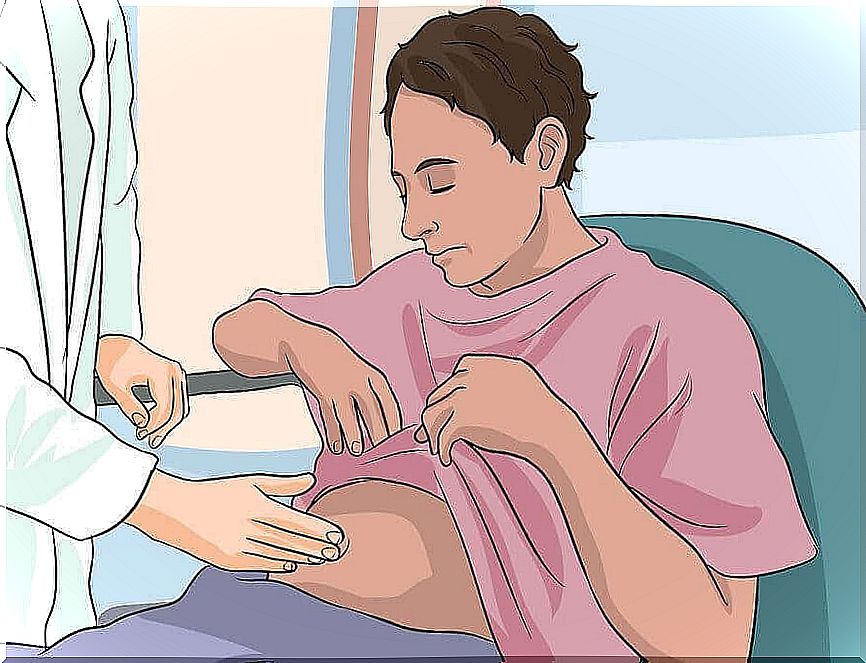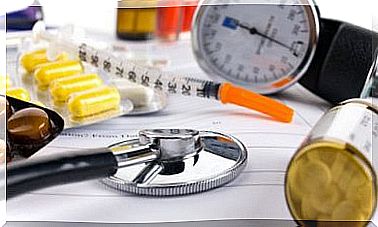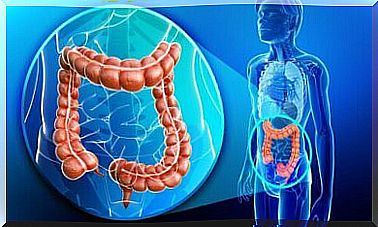What Do Your Intestinal Gases Say About Your Health?

When there is too much air in the intestine, this can lead to abdominal distention. Bacteria from the food we eat can cause intestinal gas. If you don’t get into the habit of following a proper diet, exercising, and taking vitamins, those gases will be a permanent problem. So pay attention to the signs. What do your intestinal gases say about your health?
Possible causes include eating too quickly, swallowing too much air when you eat (this often happens when we talk while we eat, for example), or gulping down excessive amounts of food.
Intestinal gases are not a disease. But they are rather alarm signals. They tell you that something is not right in the digestive tract.
On the other hand, you may be eating large amounts of sugar and cellulose. These are carbohydrates that are not easily digested or absorbed. As a result, they end up in the intestines and leave the body through the anus.
But other products can also cause the same effect. Examples include cauliflower, lentils, raisins or broccoli. In these cases, these types of gases are completely natural.
When should I be concerned?

In medical terms, gases do not indicate serious illness. But it doesn’t hurt to make an appointment with the doctor. This is especially true if you can’t get the problem under control and it affects your daily activities. Based on the symptoms, the medical specialist will determine an appropriate treatment.
Why is there so much air in my body?
Certain habits make your gut more likely to release air. We have already mentioned some of them:
- Eat fast
- Chewing gum
- Suck on hard candy
- Wearing dentures
But also a person’s mood can influence the formation of intestinal gases. How come? When a person is nervous, he or she will often swallow more air without even realizing it.
Alarming Symptoms

- After taking certain medications, intestinal gas occurs.
- A continuous intense abdominal pain. Especially if this is the case with an older person.
- Poor appetite, vomiting, dizziness or diarrhea.
- Constipation and weight loss.
- A change in the color of the stool.
- Digestive discomfort.
- Clump in the stomach.
- Gastric acid.
Causes: what do your intestinal gases say about your health
- When a person does not chew properly, the food may have difficulty reaching the large intestine.
- Once in the large intestine, the food is digested by a huge amount of bacteria. But the more difficult this process is, the more gases are formed.
- Sweeteners such as fructose and preservatives take a long time to digest.
- Yet another cause is when people don’t have enough lactase to break down dairy products.
- A busy daily lifestyle can cause stress and anxiety. This will inevitably alter how the gut works. As a result, the gut produces larger amounts of air.
- If you have constipation, you will really suffer from intestinal gas. They are caused by blocked bowel movements.
Prevention

What do your intestinal gases say? Listen carefully and take preventive care of your health. Gases manifest in belching or flatulence. In both cases we need to reduce the gassing. To achieve this goal, it is essential to change your dietary habits. Here are some recommendations:
- Avoid sucking on hard candy.
- Limit meals with pasta to just once a week.
- Choose ripe fruit whenever possible.
- Eat less cheese and yogurt.
- Limit the amount of tomatoes, carrots and celery in your diet.
- When preparing food, replace frying with roasting and boiling.
- Do not eat foods that contain a lot of sugar.
Foods to Avoid
- Mixed legumes. Scrape lentils, chickpeas and beans.
- Certain vegetables produce gas. So eat less cabbage, cucumber, lettuce or broccoli.
- Flour and grains are not good side dishes.
- Avoid dairy products, especially milk.
- Stay away from turnips, potatoes and raw onion.
- Limit carbonated drinks or stop altogether.
- Red wine.
Treatment of intestinal gases

What do your intestinal gases say about your health and how do you deal with it? Exercise is very important to improve the function of the digestive tract. It will not only reduce gas, but also reduce pain and abdominal distention.
But a medical specialist can also prescribe some supplements that contain a lot of probiotics. Because those resources provide your body with healthy bacteria that help with digestion.
But if a patient experiences intense pain that occurs several times a day, it is best to take a medicine for intestinal cramps. Because this type of medication works directly in the gut and relaxes the abdominal muscles.
Don’t try to treat yourself. Because in this way the cause of the pain remains hidden. It also prevents the treatment that is actually needed. Because when we take medication on our own, you may believe that your intestinal gas is not a result of another problem. In reality, however, this may well be the case.
Featured image courtesy of @wikiHow.com









